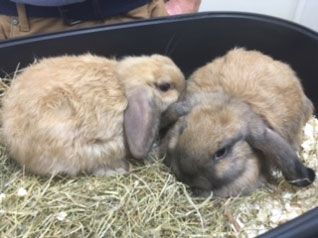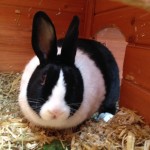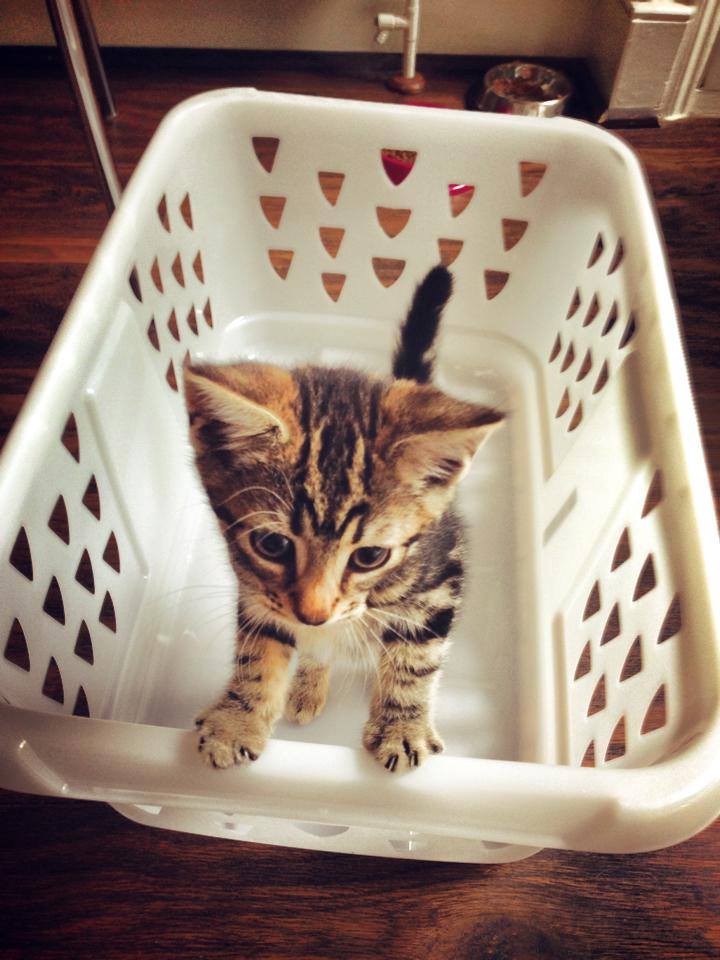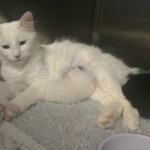Getting a Rabbit:
- Rabbits are becoming increasingly popular as pets for both children and adults in the UK. They are very sociable animals and should be kept in pairs if possible. Animals from the same litter will normally get on well, but any pair that are newly introduced must be monitored closely. Female rabbits will tolerate each other, but un-castrated male rabbits will fight. It is not recommended to keep rabbits and guinea pigs together, as both have very different requirements.
- The average rabbit will live for 5 – 10 years, so they are a big commitment.
Feeding:
- The most important part of a rabbit’s diet is hay, alongside fresh grass. Rabbits should be allowed to eat as much hay and grass as they like. Rabbit teeth grow continuously throughout their life, and so hay is vitally important to keep them worn down. Rabbits that are not fed enough hay will often encounter problems with overgrown teeth later in life, which can be very difficult to resolve.
- Rabbits can also be fed green leafy foods and vegetables, such as cabbage, chard, parsley, watercress, broccoli, basil, carrot, brambles, and dandelions. All of these foods should be washed before being fed to your rabbit. Fruits should be avoided as they are very sugary.
- Rabbits can also be fed a pre-packaged rabbit food in the form of pellets or muesli. This is the least important part of the diet, and only a small handful should be given daily. Pelleted rabbit foods are better than mueslies, as the rabbit cannot pick and choose what to eat out of the bowl!
- Always ensure fresh water is available.
Neutering:
- Rabbits can be neutered from 4 months of age. In female rabbits, this prevents uterine tumours and can greatly reduce the chances of mammary tumours developing. It also stops any unwanted pregnancies. In male rabbits, castration prevents aggressive behaviour and inappropriate mounting of objects.
Vaccinations:
- Rabbits should be vaccinated against myxomatosis and viral haemorrhagic disease (VHD). Even rabbits who live indoors should be vaccinated, as the viruses can be spread via contact with flies, and biting insects. Rabbits can be vaccinated from 5 weeks of age. Vaccinations should be repeated annually to ensure protection is maintained.
Flystrike:
- Rabbits will naturally eat some of their faeces (called caecotrophs) daily. These are the soft pellets that are normally passed at night so you may not see them. However, if a rabbit suffers from certain conditions such as obesity, arthritis, etc, it will be unable to reach around to it’s rear end to collect them. This can lead to a build up of sticky faeces, which will attract flies. If the flies lay eggs onto the rabbit’s coat, the developing maggots will eat away at the rabbit’s skin. This is an extremely painful condition called flystrike and needs prompt treatment from your vet. It is therefore important to check a rabbit’s rear end everyday for faeces and to bathe away anything that becomes stuck.
- We recommend protecting rabbits from flystrike by using an insecticide twice yearly, which can be picked up from the surgery in May and July.





